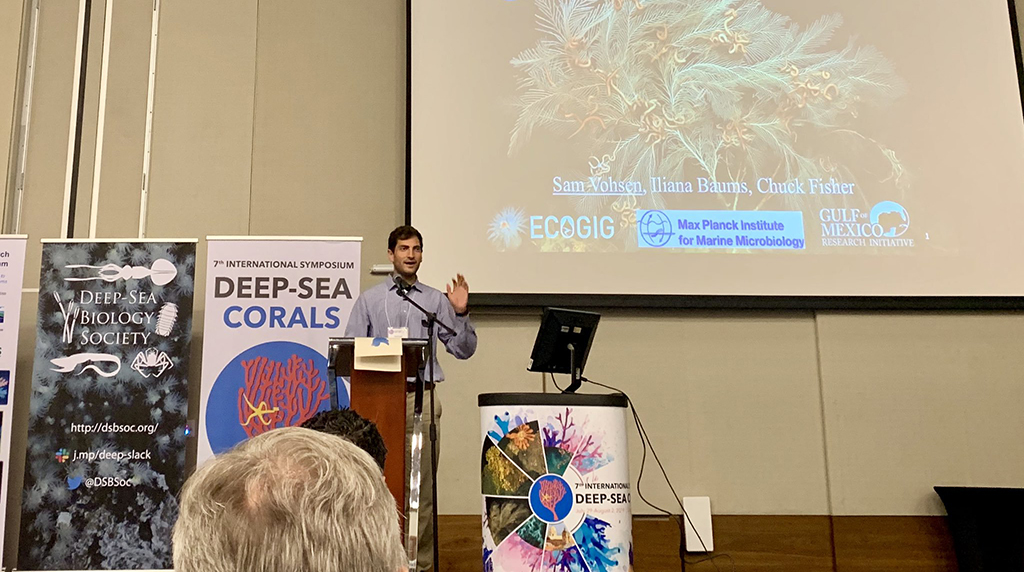August 01, 2019
ECOGIG graduate student Sam Vohsen (Pennsylvania State University, advisors Iliana Baums and Charles Fisher) recently attended the 7th International Symposium on Deep Sea Corals in Cartagena, Colombia, where he gave the keynote speech about his research teasing apart deep sea coral micobiomes. The abstract of his talk is below - congratulations to Sam on all his hard work!
"The microbiomes of shallow-water corals play important roles such as nitrogen fixation, while those of deep-sea corals are understudied. To characterize the microbiomes of deep-sea corals, we collected samples from over 30 species, water, and sediment from across the Gulf of Mexico for 16S sequencing. Coral microbiomes were distinct from the water and sediment and differed between even closely related species. Single microbes often dominated the microbiomes of particular coral species and may be symbionts. One is an apicomplexan (eukaryote) that dominated Leiopathes glaberrima with a plastid genome that partially encoded chlorophyll biosynthesis. Closely related apicomplexans were found in a variety of other coral taxa and like others in this group may be parasitic. We also found a novel bacterium of the Mollicutes in Callogorgia delta. This bacterium had a functionally and physically reduced genome suggesting a symbiotic lifestyle. FISH microscopy revealed large aggregates of bacteria within the mesoglea and specific probes are under development to confirm their identity. Finally, the octocoral Paramuricea sp. B3 from a site with active cold seeps were dominated by Thioglobus, a close relative of the sulfide-oxidizing endosymbionts of Bathymodiolus spp. This bacterium was not present in the surrounding water, sediment, or co-occurring scleractinian corals. Its genome revealed the potential to oxidize reduced sulfur compounds and fix carbon via the Calvin cycle and we confirmed that these pathways were transcriptionally active. Furthermore, its relative abundance in the coral was correlated with the depletion of carbon-13 and nitrogen-15 in coral tissue and therefore incorporation of chemoautotrophic primary production into the coral holobiont. This suggests that the diet of Paramuricea sp. B3 may be supplemented with chemoautotrophy by a Thioglobus symbiont. Altogether, this work discovered several potential symbioses which may prove important to deep-sea corals."


















 back to top
back to top